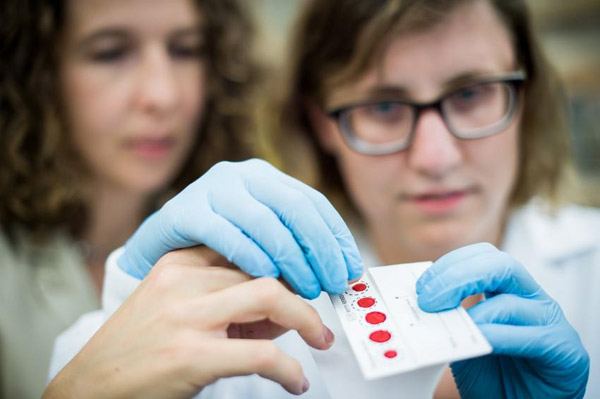
Researchers at the University of British Columbia have developed a novel method to test for vitamin B12 deficiency that is sensitive enough to work on anyone, including newborn babies and large swaths of the general population.
Vitamin B12 deficiency can be tested with a single drop of blood collected from a finger prick, then blotted and dried overnight on a card consisting of filter paper. The UBC study made dried blood spot card analysis sensitive enough to measure the amount of methylmalonic acid (MMA), an indicator of a person’s B12 level.
“This minimally invasive approach helps us measure deficiency in an easier and more convenient way, especially in large samples of people,” says study author Yvonne Lamers, a professor in the Faculty of Land and Food Systems and Canada Research Chair in Human Nutrition and Vitamin Metabolism. “Our method is the first to make dried blood spot analysis sensitive enough to test healthy people for B12 deficiency.”
The method simplifies blood sample collection for researchers in rural or remote areas where sophisticated lab equipment is unavailable. It’s currently being used in a research project in rural Indonesia.
The method could also have a significant clinical application. It has the potential to be added to the BC Newborn Screening Program. The program tests for treatable disorders in all infants born in the province. B12 deficiency, if not detected and treated early, can cause delayed brain development, slow learning and digestion problems in babies.
“We are interested in Dr. Lamers’ method, which may be sensitive enough to detect and confirm B12 deficiency using the blood spot cards currently collected on B.C. newborns,” says Hilary Vallance, director of the BC Newborn Screening Program.
The study done by University of British Columbia.